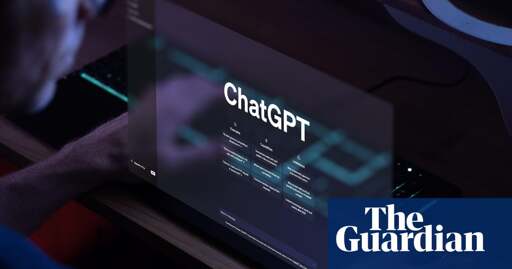Guardian investigation finds almost 7,000 proven cases of cheating – and experts says these are tip of the iceberg
Thousands of university students in the UK have been caught misusing ChatGPT and other artificial intelligence tools in recent years, while traditional forms of plagiarism show a marked decline, a Guardian investigation can reveal.
A survey of academic integrity violations found almost 7,000 proven cases of cheating using AI tools in 2023-24, equivalent to 5.1 for every 1,000 students. That was up from 1.6 cases per 1,000 in 2022-23.
Figures up to May suggest that number will increase again this year to about 7.5 proven cases per 1,000 students – but recorded cases represent only the tip of the iceberg, according to experts.
The data highlights a rapidly evolving challenge for universities: trying to adapt assessment methods to the advent of technologies such as ChatGPT and other AI-powered writing tools.



In some regard I don’t think it should be considered cheating. Don’t beat me up yet, I’m old and think AI sucks at most things.
AI typically outputs crap. So why does this use of a new and widely available tech get called out differently?
Using Google (in the don’t be evil timeframe) wasn’t cheating when open book was permitted. Using the text book was cheating on a closed book test. In some cases using a calculator was cheating.
Is it cheating if you write a paper completely on your own and use spell check and grammar check within word? What if a grammarly type extension is used? It’s a slippery slope that advances with technology.
I remember testing and assignments that were designed to make it harder to cheat, show your work, for math type approaches. Quizzes and short essays that make demonstration of the subject matter necessary.
Why doesn’t the education environment adapt to this? For writing assignments, maybe they need to be submitted with revision history so the teacher can see it wasn’t all done in one go via an LLM.
The quick answer responses are somewhat like using Wikipedia for a school paper. Don’t site Wikipedia and don’t use the generated text for anything but a base understanding of the topic. Now go use all the sources these provided, to actually do the assignment.
It’s absolutely cheating - it’s plagiarism. It’s no different in that regard than copying a paper found online, or having someone else write the paper for you. It’s also a major self-own - these students have likely one opportunity to better themselves through higher education, and are trashing that opportunity with this shit.
I do agree that institutions need to adapt. Edit history is an interesting idea, though probably easy to work around. Imo, direct teacher-student interfacing would be the most foolproof, but also incredibly taxing on time and effort for teachers. It would necessitate pretty substantial changes to current practices.
I agree. This is a paradigm shift, it won’t get erased out of use.
Repeat after me: it’s NOT FUCKING A FUCKING I when it is LLMs or other machine learning snakeoil.